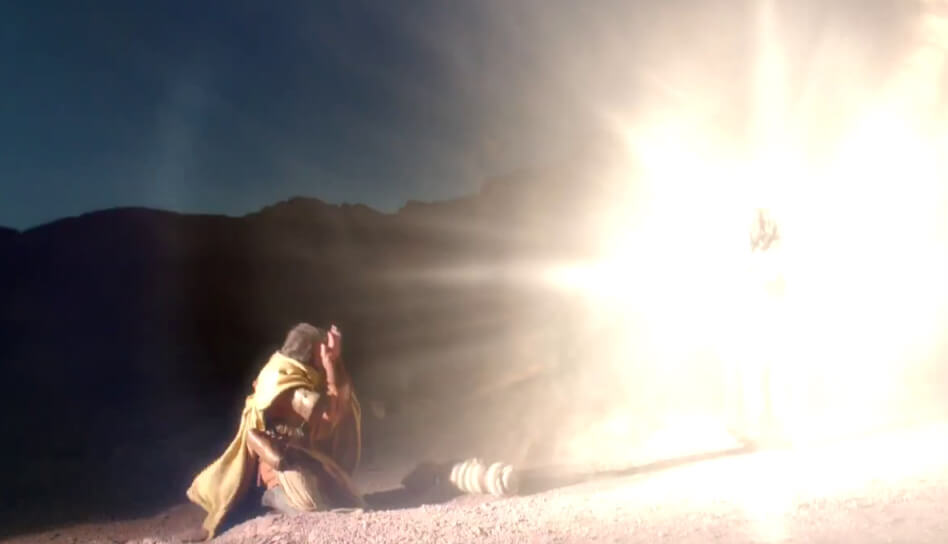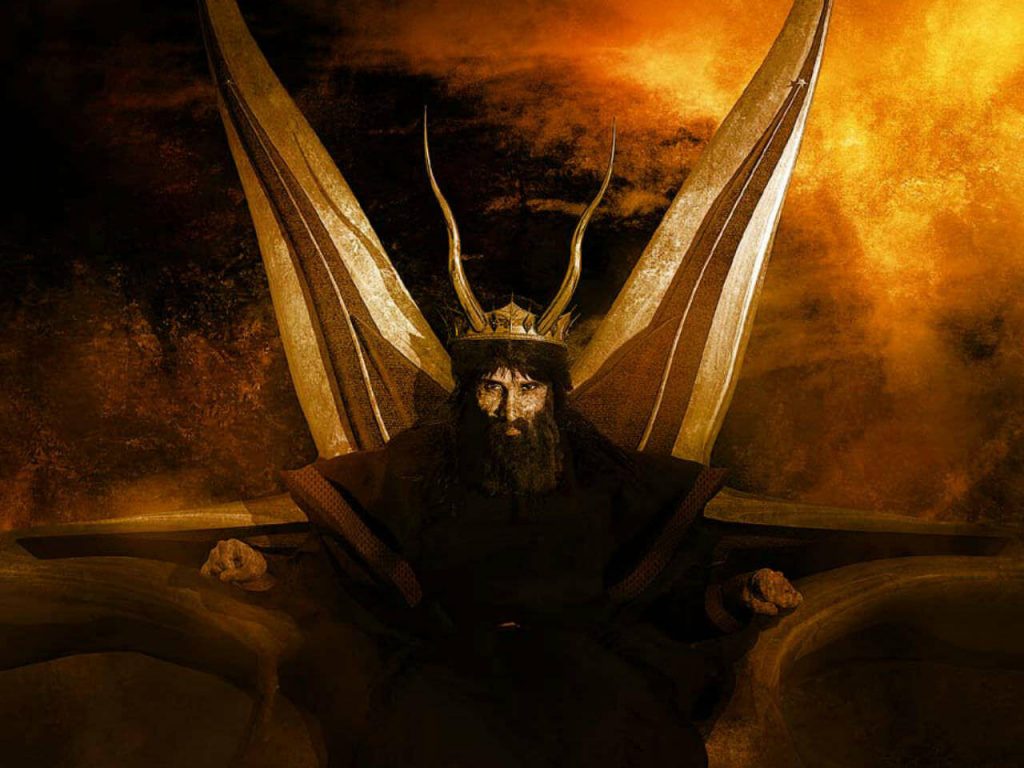For three and a half years Jesus walked the length and breadth of Israel performing all manner of miracles and teaching the people about the Kingdom of God. He also trained his disciples and sent them out by twos to preach a call of repentance, for the Kingdom of the Heavens had drawn near.
But when Jesus came up to Jerusalem for the Passover for very last time, he knew his ministry was done. His time had come. He knew that the future of humanity was at stake, and more importantly God’s word and reputation. In order for God’s will to be done completely Jesus must hand himself over and die an excruciating death.
The whole city was set into commotion at his coming. At long last, here was their king! But his coming was not in a way some may have expected. He did not come into the city with the pomp and ceremony of a great conquerer. He was not decked out with a crown and a scepter and a flowing purple robe. He is riding on a lowly beast of burden, a little donkey.
Ahead of Jesus: “Most of the crowd spread their outer garments on the road, while others were cutting down branches from the trees and spreading them on the road. Moreover, the crowds going ahead of him and those following him kept shouting: ‘Save, we pray, the Son of David! Blessed is the one who comes in Jehovah’s name! Save him, we pray, in the heights above!”’
Many of the inhabitants of the Jew’s sacred city recognized that Jesus was a prophet from up north, from Nazareth in Galilee. How encouraging it must have been for Jesus to see so many of the Jews receive him as being sent by Jehovah. Even the young boys were hailing him in the temple as the messianic son of David.
But the Jewish leaders did not accept him. They even tried to pressure Jesus to rebuke those who hailed him as their savior and king. Jesus refused.
He went to the temple and once again drove out the sellers of sacrificial animals and overturned the tables of the money changers who had set up shop in the courtyard. Jesus cited the prophecy of Jeremiah and ordered them to stop making his Father’s house of worship into a cave of robbers.
The leaders of the Jews were furious, aghast at the audacity of this man who had no religious qualifications whatsoever. They demanded that he answer by whose authority he acted. The high priest and temple officers certainly had not authorized this non-priestly fellow from Nazareth to invade the temple environs and shut down their lucrative business operation —but Jehovah had.
It was then that the Jewish religious authorities determined to get rid of him.
The apostles had followed him to Jerusalem and had no doubt witnessed the shocking confrontation in the temple. They apparently were imagining that Jesus was preparing Jerusalem for his being installed as king of Israel. Later as they were showing him around the temple, assuming perhaps this would be their new base of operation after their rabbi was installed as king, Jesus stunned them by saying that not a stone would be left standing upon a stone and not be thrown down to the earth. To their utter amazement the Teacher told them that his Father’s house was going to be destroyed!
Jesus departed from the temple and withdrew to the Mount of Olives outside the city, where the disciples approached him privately and asked when the destruction would take place. As we know, Jesus’ reply was a very comprehensive, far-reaching prophecy that encompassed far more than the destruction of the stone temple. Jesus spoke of his coming again as the glorious Son of man during the conclusion of the system, culminating in a great tribulation that would come upon the entire inhabited earth, not just Jerusalem!
After the Lord finished speaking with the apostles on the Mount of Olives he explained to them that in two days was the Passover and he was destined to be delivered up and executed on a stake. Already the Jewish religious leaders were setting their scheme into motion to destroy him.
During the Passover meal Jesus revealed that one of the apostles was a devil. And he handed the morsel to Judas and Satan entered into him.
But Jesus spoke extensively to his remaining apostles after Judas’ departure during the evening meal and later in the garden of Gethsemane. Although he was leaving them then, he assured them that he would return and take them to his Father’s heavenly house. While he was still with them those last few precious hours he used that time to reset their expectations beyond his impending death, to the time when they would see him again.
“I WILL COME AGAIN”
Although the disciples did indeed see their Lord again just a few days after his death, when he appeared to them on numerous occasions over the course of 40 days, that is not the reunion Jesus had in mind when he said to them: “I am going my way to prepare a place for you. Also, if I go my way and prepare a place for you, I will come again and will receive you home to myself, so that where I am you also may be. And where I am going, you know the way.” — John 14:3-4
In saying he would “come again” Jesus was speaking of his second coming. Oddly, the term “second coming” does not resonate with Jehovah’s Witnesses —not at all. From the very beginning the core doctrine of the Watchtower is that Jesus has already come, having returned invisibly —although it is no longer referred to as his second coming. As far as the Watchtower is concerned the second coming of Christ is theocratic history — essentially, a non-event. Jehovah’s Witnesses certainly do not anticipate any sort of second coming in the future.
But is the second coming really invisible? It is true, Jesus is now an invisible, immortal spirit dwelling in unapproachable divine light. And because Jesus presented his flesh as a sacrifice to God there is no scriptural basis to expect Christ to give up his spirit nature and revert to the flesh again. The rapturist’s doctrine of a bodily resurrection and return of Jesus simply cannot be true.
But why did Paul refer to “the second time he appears” at Hebrews 9:28? Not only that, the inspired apostle said “the second time that he appears it will be apart from sin, and he will be seen by those earnestly looking for him for their salvation.”
While the Watchtower is correct in teaching that every eye will not literally see Jesus, the writings of the apostles indicate that his disciples —“those earnestly looking for him” —will see his manifestation. After all, Jesus clearly stated that the world would behold him no more, but his disciples would. Needless to say, those who experience the first resurrection will see Jesus in Heaven, but is that all there is to it?
The Watchtower teaches that the first resurrection has already begun and any anointed person who dies after 1914 receives an instantaneous resurrection —“in the twinkling of an eye.” However, Paul was not writing about Christ being seen by the resurrected holy ones in Heaven. How do we know? Simple. Because they would not be “earnestly looking for him for their salvation” after having been resurrected as immortals, would they?
If “the second time that he appears” is really an invisible appearance Paul would not have written of his appearing and being seen by his disciples. He would have simply said the next time he comes invisibly, or something to that effect. If words mean anything, what reasonable person would suppose that an appearance can take place invisibly?
Since the first time Jesus appeared he was obviously seen by those who were his disciples, even as the apostle wrote at 1 John: “That which was from the beginning, which we have heard, which we have seen with our eyes, which we have observed and our hands have felt…” —it seems reasonable for us to believe that the apostle Paul believed that Christ was going to appear and be seen in some form by his disciples the second time he appears. In fact, in his very same epistle John wrote: “We do know that when he is made manifest we will be like him, because we will see him just as he is.” The Watchtower’s invisible parousia is clearly at odds with the Scriptures.
In the same 14th chapter of John, Jesus went on to say: “I will not leave you bereaved. I am coming to you. In a little while the world will see me no more, but you will see me, because I live and you will live. In that day you will know that I am in union with my Father and you are in union with me and I am in union with you.”
Although all those dead in union with Christ will see him when they are resurrected, the words “I am coming to you” are meant for the living in union with Christ during the conclusion. That is why Jesus made a distinction between the world that will see him no more and those in union with Jesus who will see him when he comes, when he is made manifest to them.
The Watchtower’s reasoning to support an invisible presence is not sound. Basically the argument for an invisible parousia is supported solely by circular reasoning, along the lines of: ‘Since Jesus has already come and no one sees him then he must be invisibly present.’
While it is true (as already stated) that Jesus will not return in the flesh, does that mean that a spirit cannot become manifest to humans? Absolutely not! Did not Jehovah manifest himself to Moses on the mountain? Although Moses could not literally see the Almighty God without being instantaneously vaporized, he did see his glory, so much so that Moses’ face emitted rays —an afterglow of the encounter with the divine, if you will.
And then there was Paul, or rather, Saul at the time, who was blinded by Christ’s appearance to him on the road to Damascus.
On one confrontation with the Pharisees brought on by his giving sight to a blind man on the Sabbath, Jesus said: “For this judgment I came into this world, that those not seeing might see and those seeing might become blind.”
So it is, the second time he appears will accomplish the same judgment. Those who boast of seeing Christ in his invisible presence will be forced to acknowledge their blindness, or else go off into total darkness.
“LOOK! YOUR KING IS COMING TO YOU”
When Jesus rode into Jerusalem and was hailed as king the prophecy at Zechariah 9:9 was fulfilled, which states: “Rejoice greatly, O daughter of Zion. Shout in triumph, O daughter of Jerusalem. Look! Your king is coming to you. He is righteous, bringing salvation, humble and riding on a donkey, on a colt, the foal of a female donkey.”
However, the context of the prophecy really has to do with Jesus’ second coming. That is evident by the very next verse, which says: “And he will proclaim peace to the nations; his rulership will be from sea to sea and from the River to the ends of the earth.”
When the jubilant Jews accepted Jesus as the son of David they certainly did not imagine that he was the ruler of the whole earth. The fact that the prophecy speaks to both his first and second coming makes the events marked by his triumphal entry into Jerusalem a pattern of the things to come, when Jesus comes again as the King of kings and Lord of lords.
If the pattern holds true we may expect the humble and lowly to recognize that Jesus has come and the high and mighty, the Pharisees, to oppose him and persecute those who are privileged to see Christ.
The cleansing of the temple foreshadows the judgment of the house of God and the removal of the evil and sluggish slaves. We may expect a modern Judas, the man of lawlessness, to be dismissed immediately prior to Christ coming alongside (parousia) Jehovah’s chosen ones as they recline at the table of the last evening meal, which was what Jesus intimated when he said: “Be dressed and ready and have your lamps burning, and you should be like men waiting for their master to return from the marriage, so when he comes and knocks, they may at once open to him. Happy are those slaves whom the master on coming finds watching! Truly I say to you, he will dress himself for service and have them recline at the table and will come alongside and minister to them.”
The dismissal of the evil ones does not mean their immediate destruction though. As Jesus said, ‘there is where their weeping and gnashing of teeth will be.’
Knowing they have been put out of the Kingdom and face certain destruction the condemned slaves will orchestrate the murder of their former brothers. That is why after the Passover meal Jesus told his eleven faithful ones: “I have said these things to you so that you may not be stumbled. Men will expel you from the synagogue. In fact, the hour is coming when everyone who kills you will think he has offered a sacred service to God. But they will do these things because they have not come to know either the Father or me. Nevertheless, I have told you these things so that when the hour for them to happen arrives, you will remember that I told them to you.”
In other words, Jesus’ brothers who are at the last evening meal will experience the same persecution and death that their Master did. But how comforting the words of Christ are: “I have said these things to you so that by means of me you may have peace. In the world you will have tribulation, but take courage! I have conquered the world.”






